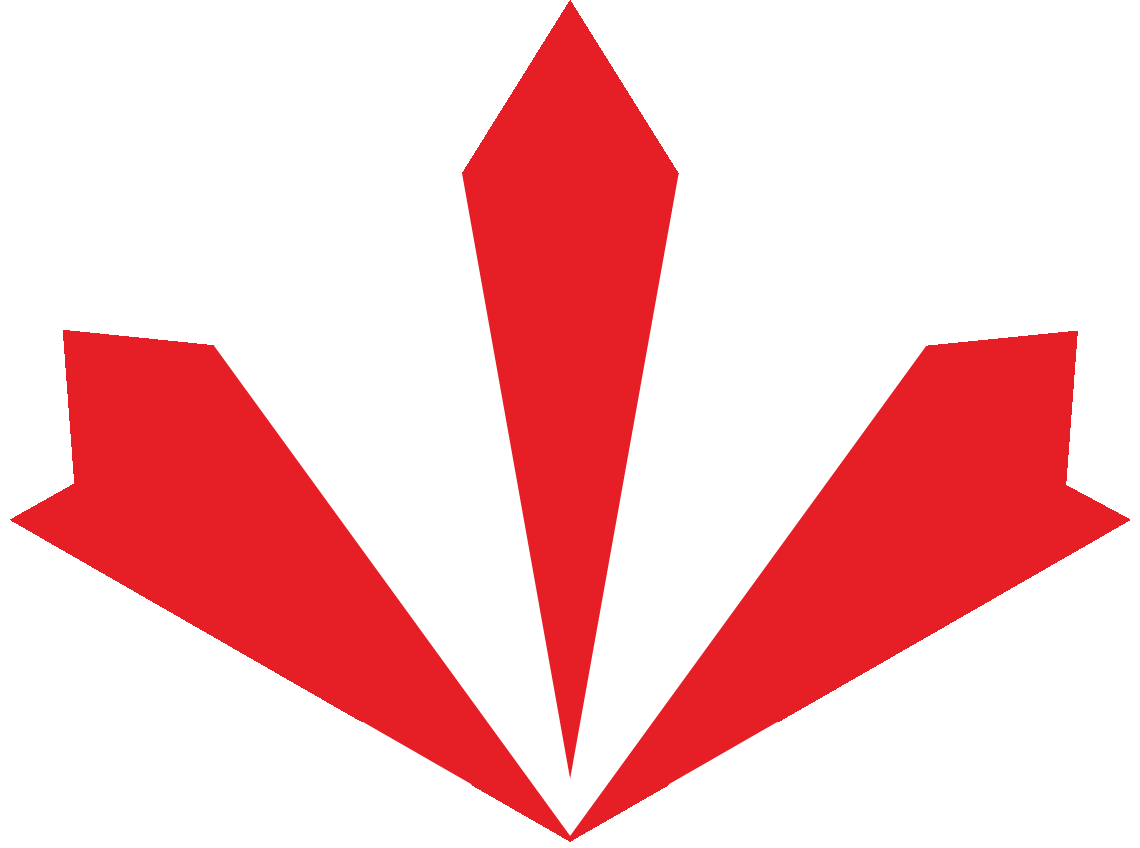HOW TO PLAN A SUCCESSFUL EVENT: CORPORATE EVENTS & CONFERENCES
Whether organizing a small meeting or orchestrating a large conference, event planning is a huge task, and it is critical to know how to plan a successful event. With every event, no matter how simple or complex, it requires detailed planning and coordination with all stakeholders from first conversation until the day of the event.
From establishing an accurate budget to promoting your event, there are a number of components you should start to consider early on to make the process as stress-free as possible. While no two events are the same, and every event has varying goals, budgets, and audiences; there are several steps you can take to jump-start the planning process, keep on track, and maximize your event’s success.
DEFINE YOUR GOAL
Set a timeline and include all the activities you will need to complete before the event. This plan can change but it is important that you can visualize everything that you need to do. Always ask yourself beforehand ‘What are you hoping to achieve from this event?’. A set of strong objectives can help you to stick to a core plan and produce a fantastic event. It seems pretty obvious but it’s worth having a critical approach to this issue.
Formulate your goal as specifically as possible: do you want to convey knowledge to participants; raise funds for a project or offer guests aesthetic pleasure? The format of your celebrations or meetings will depend on the answer: its concept, timing and duration, role distribution within the team, the layout of the hall, catering, and sound. Everything you do for your event will have a purpose and will generate an opinion of each attendee.
Once you know all the costs and the timeline associated with your conference event, it’s time to start the real plan! Creating an event master plan will allow you to ensure every aspect remains on track, as well as make it easier to coordinate with volunteers and event committee members. Your event master plan should encompass all aspects of the event, including:
- The venue, logistics, & catering management (contracts, permits, insurance, etc.)
- Speakers and presenters (identifying, confirming, logistics & management)
- Activities and entertainment
- Publicity and promotion (online & offline, such as web page & online promotion; events calendars; printed programs; media relations; signage; social media, etc.)
- Registration (online sign-up, payment, and tracking; on-site sign-in, etc.)
- Sponsor and partner management
- Volunteer management and responsibilities
SET A TIMELINE TO MANAGE ALL TASKS TO MEET EXPECTATIONS
While planning your event, consider also creating a detailed timeline, so that everything moves smoothly. Include when any permits or insurance policies need to be submitted when registration ends, and a detailed timeline of the day of. Not having a timeline leaves room for error and will make it more difficult to remember what worked and what was not executed at each of your events. If you or your organization has run previous events of a similar type, reviewing any documentation that exists at this stage can help you ensure you’re not missing anything. Keep adding and subtracting off the list as you go and create separate lists for larger tasks and responsibilities. Add deliverable dates for each task to be complete, so that you can continue to move forward efficiently.
ASSING ROLES & RESPONSIBILITIES
It is very important to distribute tasks among the team members not only at the preparation stage but also during the event. Allocate responsibilities by zone. For example, someone is responsible for the registration zone, someone else for greeting the guest speakers, a different person for the equipment, for catering, communication with the press, etc. Every person needs to have his or her zone, which he or she should be responsible for throughout the entire duration of the event. Give each member of the team a document with the assigned responsibilities, so that every person knows who to contact for any specific issue.
ESTABLISH THE EVENT TEAM
Unless your exhibition or functions is really small, you’re going to need a hand. Well really, you’re going to need a few sets of them. Because while you may have the vision for the final product, you’re going to be stretched a little thin if you’re expected to focus on everything when planning an event. It’s up to you to not only assemble an event planning team but also to make sure that the many wheels are all spinning in the right direction.
DEVELOP A CONFERENCE THEME OR EVENT THEME
What is the conference/event theme? Does the conference theme speak to what the attendees and members will want to learn in attending the event? Will the event theme attract delegates? Will the theme attract delegates? To establish a powerful and catchy conference theme name, it must align with current events, organizational goals, industry challenges and the topic themes that will be explored throughout the program. What is the purpose of the event? What do you want the attendees to learn?
WHO IS GOING TO BE THERE?
Who is your target audience? After deciding who your target audience is, you can answer specific questions. I am sure we are missing some, however these questions will get you thinking in the right direction.
- As an exhibitor, who do you want to attract to your booth?
- As show management, what brands do you want to bring to your attendees?
- As a corporate event host, who will benefit from this shared experience?
- Does your audience reside in a specific region?
- What is the demographic of the audience?
- How will the audience impact the event as a whole?
- Are there specific schedules of your audience that need to be taken into account?
- What is the main takeaway from this event?
- What are the specific aspects that make this event to go to this year?
- What worked well last year?
- What aspects of your event need to be decided months before the event? What elements can be planned a few days before?
- What amenities need to be present at your events?
- What does the event schedule look like?
- How long do your events need to be to get the message across and to make a lasting impression on attendees?
SEARCHING FOR SPEAKER
Now is also the time to start securing speakers and checking the availability of presenters and special guests. Find out whether they’re a good fit for your event by checking where they’ve featured before and what kind of audiences they seem to attract. Your speakers and panelists are an important part of your conference. For many events, the keynote speaker is the star of the show. But if your sourcing strategy starts stagnating, the quality of your speakers will begin to decline. To find Keynote Speakers, Business Speakers, and Motivational Speakers for your next event. Use the Speakers Bureau of Canada Find a Speaker Search Tool. Use search filters here to narrow down to the perfect keynote speaker.
BOOKING A SPEAKER
Speakers Bureau of Canada provides meeting and conference planners free speaker booking planning services – from identifying the perfect speaker to coordinating travel, contracting, and programming logistics. Today, access to the very best knowledge is critical to success. If you’re a corporation, organization or association searching for a competitive edge, look no further. Speakers Canada’s bureau talents are experts who speak to educate, motivate, and inspire audiences at corporate meetings and events. They provide in-depth information and highly focused content targeted to specific needs, delivered compellingly.
What makes Speakers bureau Canada speakers talent different? We are the premier speakers in Canada: keynote speakers, facilitators, coaches, and trainers. Many are internationally renowned and have been certified as Certified Speaking Professionals (CSP). SBC members are in the business of speaking. They are experts. They deliver with eloquence. And they abide by a code of ethics. From inspirational to highly practical to business and leadership – count on SBC members to provide the highest value – the edge you need to succeed and the depth of knowledge to give you a winning advantage in business or a whole new “take” on life.
SECURING A DATE THAT WORKS FOR ATTENDEES
When will corporate meeting or conference takes place? Is there a time of year that your desired venue is available? Is there a time of year that is less hectic in your desired city? What will the weather be like during your desired event dates? Is there a specific time of year when your audience is most/least busy? How often will this event take place? Will the event take place during a specific time in a sales cycle for your audience?
This is an important factor that many people often forget. Ensure that you create a date that is suitable for your intended audience. Make sure that it isn’t conflicting with any holidays or key calendar events, both in your industry and outside it.
SECURING A VENUE OR VIRTUAL PLATFORM
Where is your corporate gathering going to take place? What venue, in what city? Where will attendees stay if they come from out of town? Is there an airport, public transportation, or accommodations around the desired location? How easy is it to get to your desired venue or city? Where do most of your attendees live?
Make sure that your location aligns with your objectives. Always make sure that the room is adequately equipped for your needs and ask about all associated costs before booking. Remember to ask about additional details such as parking, transportation to and from the venue, and food and beverage services.
PROMOTE THE EVENT
Promoting the event can be the most important thing to do if you are selling tickets or your membership can purchase a conference package. You can also promote to exhibitors, sponsors and the contributors that make your event a memorable experience year after year.
PLAN HEALTH AND SAFETY MEASURES
If you’re hosting your corporate event in person, be covered for all eventualities by conducting a risk assessment and drawing up a health and safety plan to protect suppliers and attendees from potential problems. In these times, restrictions may mean social distancing measures or strict personal protective equipment (PPE) requirements, so take these into account. For virtual events, consider sharing a list of rules and your code of conduct with attendees before the big day.
FIND WORKING PARTNERS FOR PRODUCTION, CATERING ETC
Your next step to consider when organizing an event is researching suppliers. From DJs and decorators to food trucks and face painters, a lot of your event’s success relies on your ability to find great people to work with.
CARRY OUT A FINAL CHECK 24 HOURS BEFORE THE EVENT
Make sure that you’ve informed the participants of how to get to the location, invited all the important guests, and prepared the printed materials, and audio and video content. Check whether everyone understands his or her tasks and responsibilities and whether the space is ready. For this purpose, you can draft a checklist, like this one.
A similar checklist can be drafted for the checking preparation on the day of the event: whether everything is in place, working, or being done on time.
Be sure to print out the event programme and let each member of the team and volunteers have a copy. In addition, give everyone the main contact phone number for communication with one another in the event of an emergency.
EVALUATE THE EVENT
Take the time to reflect after any event. Look at where you could manage your time or tasks better in the future to maximize efficiency and fine-tune your planning and preparation skills.
With these event planning basics, you should be able to host a wonderful event that your guests will truly enjoy.
ASK FOR FEEDBACK
You’re probably going to be tired and happy after the event, but it will be difficult for you to give an objective assessment of how it all went. That is why you need to ask participants to complete a printed evaluation form at the end of the event or an online form when they get home. Ask them to assess various aspects of the event: logistics, keynote speakers, Annual General Meeting locations, and the work of the organizers. This information will help you to avoid mistakes in the future and improve the quality of your corporate events. If possible, get feedback through social networks or record video reviews at the end of an event. This will come in handy if your corporate gatherings in Canada is held again. Whatever event you organize, be optimistic and don’t be afraid of surprises and your event will be a success!
Related Posts
 6 TIPS TO SUCCESSFULLY PROMOTE A CORPORATE EVENT
6 TIPS TO SUCCESSFULLY PROMOTE A CORPORATE EVENT
 PROMOTE THE EVENT ON SOCIAL MEDIA TO RAISE ATTENDANCE
PROMOTE THE EVENT ON SOCIAL MEDIA TO RAISE ATTENDANCE
 HOW TO PLAN A SUCCESSFUL EVENT: CORPORATE EVENTS & CONFERENCES
HOW TO PLAN A SUCCESSFUL EVENT: CORPORATE EVENTS & CONFERENCES
 WHAT IS THE PURPOSE OF A KEYNOTE SPEAKER: WHY HIRE ONE?
WHAT IS THE PURPOSE OF A KEYNOTE SPEAKER: WHY HIRE ONE?
 ADDITIONAL VALUE FOR YOUR INVESTMENT: SPEAKERS BOOKS AND ONLINE TRAINING
ADDITIONAL VALUE FOR YOUR INVESTMENT: SPEAKERS BOOKS AND ONLINE TRAINING
